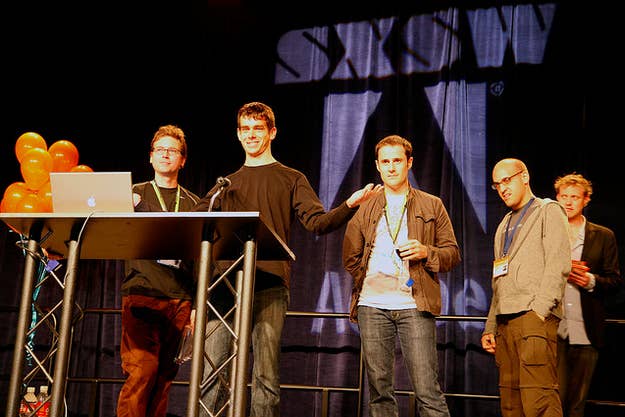
The biggest South by Southwest ever may be the least important in a decade — at least as far as the tech world is concerned.
Austin's sprawling music, film and technology festival is going to be busy, with record attendance across the board. "In 2012, SXSW had 60,047 conference registrants (24,569 were from Interactive)," a spokeperson writes, "but for 2013 we estimate our growth to be in the 5-8% range."
A lot of those 25,000+ SXSWi attendees will whisper about what will be the "killer app" of the conference, or the app that "wins" the week; in 2007, Twitter gained notoriety at SXSW, and in 2009 FourSquare did the same. In 2011, GroupMe was the star. With thousands of eager techies gathered together for a week or more, Austin can make or break your startup. Or so the thinking goes.
The thing most people remember about SXSWi 2012, however, isn't Highlight, the app that many said "won" the show; it's a Jay-Z concert and an incredibly ill-advised PR stunt that conscripted Austin's homeless residents to serve as 4G data hotspots.
Brad King, a professor at Ball State University who has missed just one SXSW in two decades, says that this expectation — that SXSWi, as a collection of tech insiders, can anoint the Next Big Thing — was never really in the conference's DNA. "I always find it interesting when people want to write about the history [of SXSW] ... and only go back to 2006. The fact of the matter is, up until Twitter launched, South by Southwest was never a place people launched things out of," he says.
"Twitter was an anomaly — I was there when they turned on the [tweet] board, and people were standing around watching people tweeting across the screen and, like, in the hallway, people were saying, 'this is the dumbest thing I've ever seen in my whole life.' "It wasn't until after SXSW that it really took off — FourSquare was the same way."
Since 2007, the year Twitter launched, Interactive attendance has increased by over 400%. SXSWi has become less of an event for high-powered insiders and tastemakers to rub shoulders than a sort of startup fantasyland attraction. SXSWi's own promotional materials spell out the appeal for many attendees, who pay more than $1,000 for their passes: "[G]rowth is a positive note for SXSW Interactive as more high-quality folks can help registrants take their career to the next level.
The growth has been seen as less of a "positive note" for many entrepreneurs and startups. The Wall Street Journal reports that many former attendees are skipping the conference altogether — in their terms, the "return on investment" is simply too low.
Anxiety about what exactly SXSWi 2013 will bring us has deterred some publications from attending as well. Melissa Ablett, general manager of BostInno, which covers the tech industry in Boston, says the trip just isn't worth it. "It's a huge commitment (from both a budget and man power standpoint) for small companies," she says, "and the spend doesn't make sense for the off-chance that you'll have a serendipitous introduction to an incredibly valuable person, that your marketing ploy will get noticed in a sea of marketing ploys, or that you'll be able to create coverage that can't be just as easily generated by knowing who to follow on Twitter."
"I'm hearing fewer and fewer startups are attending, and the more notable parties are being thrown by people who want to work with startups," she says. "They've caught on, the secret's out, and it kinda chokes out the 'next big thing-ness.'"
King still believes Interactive is valuable — he serves on an advisory board for the conference and emcees its Accelerator competition. But he admits that the ratio of doers to gawkers has shifted. "When you have PR practitioners who are down there, certainly it's interesting for them to know what's going on, but they don't really have their hands on technology," he says. "If you go way back [to the early years], it was a sort of weird mix. "You'd have small, intimate conversations with people who were making or building things," he remembers. "Everyone had their hands on whatever it was they were talking about."
Increased attendance and exposure brings predictable changes. Now, says Ablett, it's mostly a chance to "celebrate a culture and a focus that's becoming more and more mainstream."
But in a way, suggests King, the new, huge SXSWi is being nudged back to its roots. Unburdened of the need to divine the next great internet service or app, SXSWi is free to be what it intended to be from the start. "It's a place where people with different backgrounds come together, just like the beginning," says King.
Ablett is more direct. "SXSWi," she says, "is still a great party."
Update: In a comment, King challenges the representation of his statements. He wishes to emphasize: "I also [said] that there was more of that hardcore, original tech now than before."
